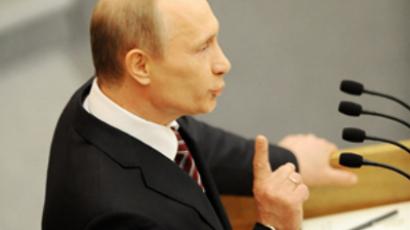Russian economy slumps further in 2Q
2Q data showed Russia's economy is contracting rapidly - while other emerging markets are recovering. The President says its time to change the economic structure, while analysts look for more infrastructure spending.
As western governments stagger under the weight of bank bailouts and economic stimulus, investors think the debt of emerging markets is actually less risky, with Russia at less risk of default than the state of California..
But for Russia – the good news ends there. The latest data shows its GDP contracting 11% in the second quarter, and President Medvedev says things must change.
“With normal oil prices, the Russian economy grew at a normal pace. When energy prices collapsed we fell more than other countries – because we didn’t change the structure of the economy. It’s still based on exports of raw materials. When the price changes, budget revenues change as well. We can’t develop like that – it’s a dead end. The crisis forces us to take decisions and change the structure of the economy. Otherwise our economy has no future.”
Experts say Russia didn’t have much time to restructure its economy, since it started building up reserves from oil sales only in 2006. Besides during the crisis the government spent a lot of money bailing out large Russian companies that had borrowed massively abroad.
Yaroslav Lissovolik, Chief Economist at Deutsche Bank, Russia says that as for the money that was left after that, Russian authorities have been hesitant on infrastructure spending that could boost industry and consumer demand.
“There is what I call the fear of spending, still fear of spending in Russia. There is a wide spread perception in the high echelons of power in Russia that fiscal spending is inefficient, especially when it comes to infrastructure. A fear of losing a lot of money along the way. There is still a lot of work to be done in terms of cutting red tape in order to raise the efficiency of fiscal spending.”
Instead the government chose to use reserve funds on social spending. And it may bring results experts say. Higher pensions, financial support for the poor and unemployed will offset some of the decline in consumption.













